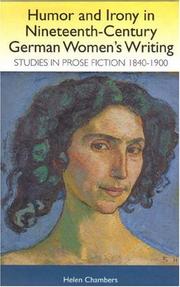| Listing 1 - 2 of 2 |
Sort by
|
Book
Year: 2014 Publisher: Washington, D.C., The World Bank,
Abstract | Keywords | Export | Availability | Bookmark
 Loading...
Loading...Choose an application
- Reference Manager
- EndNote
- RefWorks (Direct export to RefWorks)
A review of rigorous evaluations of interventions that seek to empower women economically shows that the same class of interventions has significantly different outcomes depending on the client. Capital alone, as a small cash loan or grant, is not sufficient to grow women-owned subsistence-level firms. However, it can work if it is delivered in-kind to more successful women microentrepreneurs, and it should boost the performance of women' larger-sized SMEs. Very poor women need a more intensive package of services than do less poor women to break out of subsistence production and grow their businesses. What works for young women does not necessarily work for adult women. Skills training, job search assistance, internships, and wage subsidies increase the employment levels of adult women but do not raise wages. However, similar interventions increase young women' employability and earnings if social restrictions are not binding. Women who run subsistence-level firms face additional social constraints when compared to similar men, thus explaining the differences in the outcomes of some loans, grants, and training interventions that favor men. Social constraints may also play a role in explaining women' outcome gains that are short-lasting or emerge with a delay. The good news is that many of the additional constraints that women face can be overcome by simple, inexpensive adjustments in program design that lessen family and social pressures. These include providing capital in-kind or transacted through the privacy of a mobile phone and providing secure savings accounts to nudge women to keep the money in the business rather than to divert it to non-business uses.
Banks and Banking Reform --- Economic Empowerment --- Education --- Employment Levels --- Finance and Financial Sector Development --- Financial Literacy --- Gender --- Gender & Development --- Labor Policies --- Primary Education --- Social Constraints --- Social Protections and Labor --- Women Microentrepreneurs --- Women'S Employability

ISBN: 9781571133045 1571133046 9781571136916 1571136916 Year: 2007 Publisher: Rochester Camden House
Abstract | Keywords | Export | Availability | Bookmark
 Loading...
Loading...Choose an application
- Reference Manager
- EndNote
- RefWorks (Direct export to RefWorks)
Nineteenth-century German literature is seldom seen as rich in humor and irony, and women's writing from that period is perhaps even less likely to be seen as possessing those qualities. Yet since comedy is bound to societal norms, and humor and irony are recognized weapons of the weak against authority, what this innovative study reveals should not be surprising: women writers found much to laugh at in a bourgeois age when social constraints, particularly on women, were tight. Helen Chambers analyzes prose fiction by leading female writers of the day who prominently employ humor and irony. Arguing that humor and irony involve cognitive and rational processes, she highlights the inadequacy of binary theories of gender that classify the female as emotional and the male as rational. Chambers focuses on nine women writers: Annette von Droste-Hülshoff, Ida Hahn-Hahn, Ottilie Wildermuth, Helene Böhlau, Marie von Ebner-Eschenbach, Ada Christen, Clara Viebig, Isolde Kurz, and Ricarda Huch. She uncovers a rich seam of unsuspected or forgotten variety, identifies fresh avenues of approach, and suggests a range of works that merit a place on university reading lists and attention in scholarly studies. Helen Chambers is Professor of German at the University of St Andrews, Scotland, UK.
830-7 --- 830-3 "18" --- Duitse literatuur: humor; satire --- Duitse literatuur: proza--19e eeuw. Periode 1800-1899 --- 830-3 "18" Duitse literatuur: proza--19e eeuw. Periode 1800-1899 --- 830-7 Duitse literatuur: humor; satire --- Fiction --- Thematology --- Böhlau, Helene --- Huch, Ricarda --- Ebner-Eschenbach, von, Marie --- Droste-Hülshoff, von, Annette --- Viebig, Clara --- Hahn-Hahn, von, Ida --- anno 1800-1899 --- Germany --- Kurz, Diana --- German fiction --- German literature --- Humor in literature --- Irony in literature --- History and criticism --- Women authors&delete& --- Christen, Ada --- Wildermuth, Ottilie --- Women authors --- Humor in literature. --- Irony in literature. --- History and criticism. --- Humour --- Literature --- Writers --- Book --- German Women's Writing. --- Humor. --- Irony. --- Nineteenth Century. --- Prose Fiction. --- Social Constraints.
| Listing 1 - 2 of 2 |
Sort by
|

 Search
Search Feedback
Feedback About UniCat
About UniCat  Help
Help News
News